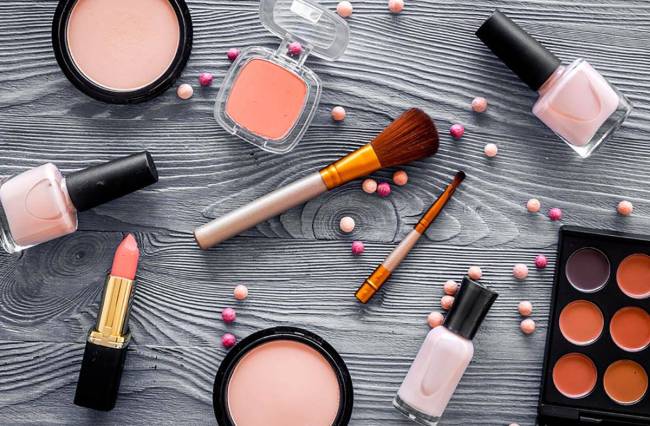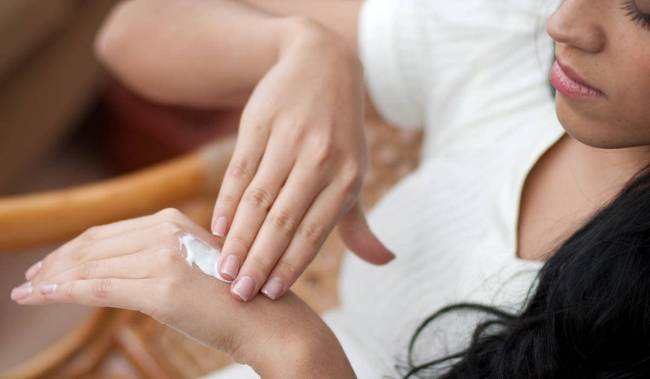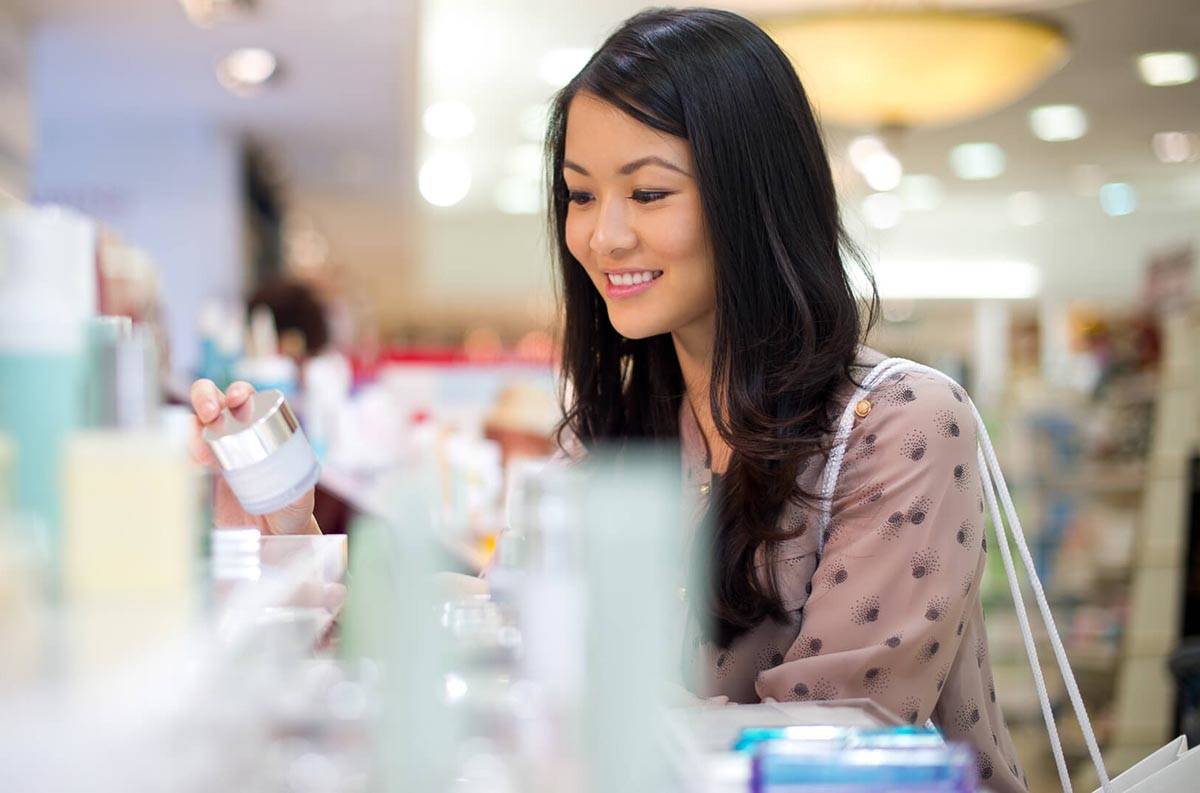Beauty product buzzwords buyers need to be wary of
What comes first, the trend or the product? It could go either way, but here’s what is almost always certain: a buzzword is involved. Look no further than the booming skincare industry, where words like “organic” and “CBD” help pull in masses of buyers, netting the global skincare market nearly $134 billion in 2019, with a projected growth of $200.25 billion by 2026, according to a 2021 report by Fortune Business Insights.
Related: All the ways online retailers get you to overspend
Though the impossible goals of skincare have largely remained the same over the years (e.g., look young and glowy; be wrinkle- and blemish-free), the language around these goals has evolved, and so too have consumer ethics and expectations. In the 1950s, the word “sustainable” might not have been a point of attraction to buyers, but in an age where our planet’s future dramatically depends on humankind’s ability to overhaul their environmental practices, words like “sustainable” are heavyweights in all industries, including that of skincare.
But labels aren’t everything and language, like looks, can be deceiving. GOBankingRates consulted skincare experts to identify 13 of the skincare industry’s most overused — and potentially misleading — marketing buzzwords.

‘All Natural’ and ‘Organic’
“The problem with this term is that it’s used as a synonym for ‘good stuff’ when in reality there are a lot of natural elements that are not good for you (poison ivy and cyanide are natural!),” said Ruth Cuadrado, senior director at No B.S. Skincare. “Just because something comes from nature doesn’t mean it’s good, and just because something comes from a lab doesn’t mean it’s bad.”
“Similar things can be said about the use of ‘organic’ ingredients,” Cuadrado continued. “Organic ingredients have not been proven to have an advantage over their conventional counterparts. There’s very little scientific evidence to support any health benefits for organic products.”
Read: 50 purchases buyers almost always regret
‘Vegan’
“Vegan’ is a huge buzzword these days, especially when it comes to skincare products,” said Suzana Rose, founder of Cruelty-Free Kitty. “Companies claim that their products are ‘vegan’ so we subconsciously associate it with something more natural, plant-based and eco-friendly; however this is rarely the case, and ‘vegan’ simply means that the product doesn’t contain any animal-derived ingredients. These products aren’t necessarily natural, safer for you or better for the environment. In some cases, they’re even tested on animals.”
‘Plant-based’
“This term can be entirely misleading,” said Dr. Greg Altman, co-founder of Evolved By Nature. “A product can be plant based, but can still be further modified with a synthetic molecule, compound or polymer/resin. The product in whole could have plant-based ingredients, but could be mixed with synthetic preservatives. It could also contain an allergen that could cause respiratory issues, sensitivities to skin, etc. When we see ‘plant-based’ on labels, we’re trying to make a connection to the word ‘sustainable’ and use it also as a measure of natural – which it is not, and of safety – which it is not.”
See: Top expenses to cut from your budget in 2021
‘Sustainable’
“From a ‘greenwashing’ standpoint, anyone can say a product is sustainable, especially if one or some of the ingredients are procured or created sustainably (this includes the packaging). And while every step to a more sustainable future is important, if you want a fully sustainable product, you’ll need to dig a bit deeper,” said Christina Eyuboglu, former beauty publicist and managing director at Adduco Communications.
“If you are concerned, look for third party certifications that help reinforce the claim you are reading.”
‘Chemical-free’
“Chem-phobia is rampant in our society, but beauty products contain complex mixtures of chemicals and you can never have a ‘chemical’-free product unless you are using just coconut oil or argan oil on your skin,” said Daniela Ciocan, founder CEO of Access Beauty Insiders. “Any cosmetic on the market will have some form of chemicals. Chemical-free is a very broad claim to make if one wants to denote that the product is free of harmful ingredients.”
‘CBD’
“This one is tricky,” said Eyuboglu. “Some beauty products are adding CBD to their formulations and that’s great! There’s been a ton of good research on the benefits of CBD for mind and body — but a lot of these products barely have any actual CBD in them. Look deeper on the ingredients list to see exactly what the top ingredients are. If you find CBD way at the bottom, it’s about marketing.”
See: 33 things you don’t need to buy during the coronavirus pandemic
‘Blue light protection’
“As someone who keeps up with beauty trends regularly, there’s one new buzzword that’s been everywhere lately: blue light protection,” said Lydia Diaz, founder of WEBA Natural Products.
“According to (an) article on Byrdie, some studies have demonstrated that blue light may cause cumulative damage to the eyes; however, the jury is still out on the effects that blue light has on the skin. While the light emitted by our electronic devices does not penetrate as far as, say, UV light from the sun, there may be some free radical formation given the amount of time we spend in front of them.”
“As a result, many skincare brands are capitalizing on this concern by creating products specifically designed to protect the skin against blue light,” Diaz continued. “Until clinical trials can be conducted, however, there’s no real evidence for, or demonstrated benefits of, these skincare products. Insofar as they might protect against free radical formation (light products with Vitamin C), they may be beneficial to the skin, but that could be said for a large number of moisturizers and serums. Dermatologists actually believe that using a barrier sunscreen would probably be more beneficial. Another inexpensive solution is to use computer screen shields, or switching to night mode on your phone. Your money might also be better spent on a good pair of blue-light blocking glasses. And if you’re using a moisturizing sunscreen or antioxidant cream, you’re already ahead of the game.”

‘Anti-aging’
“One of the buzzwords that are used to target people who fear growing old is ‘anti-aging’,” said Keith Eneix, president of the beauty brand Taut USA. “Anti-aging skincare products have become a big business and a large number of companies are promoting them all over the world. These products are marketed stating (that) they can help you look younger and avoid getting wrinkly skin.”
While feeding into consumers’ fear of the physical signs of aging, these products aren’t necessarily doing anything scientifically proven to prevent them.
“Anti-aging skincare products do not require any approval by the Food and Drug Administration (FDA), so there’s no guarantee that these products are effective,” Eneix said. “Also, there isn’t sufficient evidence to show they work or slow down premature aging.”
‘Clean beauty’
“A buzzword many are trying to get away with using is (clean beauty),” said Douglas Otero, a celebrity makeup artist, skincare expert and owner of Intermission Beauty. “I always get asked about this as I work closely with two major beauty/skincare brands (one clean/vegan and the other medical grade).”
What is “clean,” in this case? Clean means non-toxic for both humans and the environment. But this word, however one-dimensional, can often be bent or misinterpreted by brands hungry to cash in on the growing desire for harmless products.
“I always start by saying ‘look at the labels,’” said Otero. “Actual clean beauty is organic, natural, consists of no chemicals, preservatives and will usually have an expiration date. It’s that simple. So if you see lavender oil in the ingredients followed by alcohol or fragrance, chances are (that product) is not clean.”
High-end wellness brands, such as Gwyneth Paltrow’s Goop, have been criticized by dermatologists for their use of the word “clean” with no real context or meaning behind the word.
More: 18 online shopping traps and scams to watch out for
“Olive Oil”
“In my experience, I have seen the exploitation of a certain buzzword in the all-natural world…and that’s ‘olive oil,’” said Dlonzo, owner of Dregali Enterprise, the manufacturer of Dlonzo Natural Products.
“Several of my distributors have told me, if it has olive oil on the packaging, Black people will buy it! This is a great ingredient, however, there are some products that do not contain this natural oil or only have trace amounts. Yet it is prominently marketed to BIPOC consumers, capitalizing on the known benefits of the beloved ingredient.”
‘Pore-reducing’
Poor pores, always getting hated on despite serving the important purpose of allowing liquid to pass through our skin. Thanks to the rise of Instagram filters and photoshop, there’s widespread desire to mask these perfectly natural and health-serving follicles. And so we have products marketed a “pore-reducing”. But in truth there is no such thing as pore-reduction, at least, not in a skincare product.
“You cannot physically reduce the size of your pores; you can only reduce their appearance,” said Jenni Nagle, an esthetician of 20 years and co-founder at Lipgloss + Aftershave. “Anyone with congestion will immediately respond to this term with excitement and promise; however, professionals know, you cannot reduce the size — only the appearance. Furthermore, once the pore has been cleared out, thus leading to a reduction in appearance, the pore is still visible. The size is still (often) enlarged.”
‘Gluten-free’
Plenty of consumers want or need to eat a gluten-free diet. But does that matter when it comes to skincare? In other words, in order to lead a gluten-free life, do you need to have gluten-free beauty products. From a medical perspective the research plainly states that no, gluten cannot be ingested by applying it to your skin and as such is not a health concern for people avoiding the consumption of gluten. But this hasn’t stopped the skincare industry from latching onto the term as a way to entice health-conscious consumers.
“This is food marketing gone too far,” said Ginger King, cosmetic chemist, founder and CEO at Grace Kingdom Beauty. “Granted a lot of people do have allergies to gluten that causes eczema but using a claim for skincare is just adding buzz as it’s not taking it internally. It may appeal to people who have a gluten-free lifestyle but it is really just a buzzword in skincare.”
Check out: 15 times you should splurge, settle or skip when shopping
‘Holy grail’
“Beauty junkies and experts often use the term ‘holy grail’ to add a sense of urgency to customers and clients, with regards to the product they are offering,” said Lianne Sanders, licensed yoga instructor, health and wellness expert at TotalShape.com. “This jargon helps probe purchase as it’s predetermined to be a must-have, especially for people who are very much invested in beauty regimens and the like.”
In case you need a refresher, the Holy Grail is a relic from found in Christian mythology. Sought by Arthurian Knights in the 13th century, the Grail is traditionally considered to be the chalice that Jesus drank from at the Last Supper. Legend has it that this vessel was used to collect Jesus’s blood by Joseph of Arimathea after he was crucified. Real or not, it has nothing to do with skincare or good looks.
More From GOBankingRates
20 home renovations that will hurt your home’s value
Should the COVID-19 vaccine be required? Take our poll
What income level is considered middle class in your state?
This article originally appeared on GOBankingRates.com: 13 buzzwords that make you overspend on skincare products























